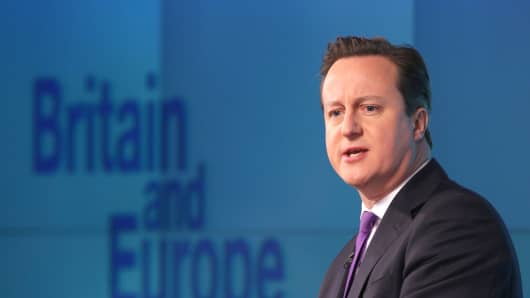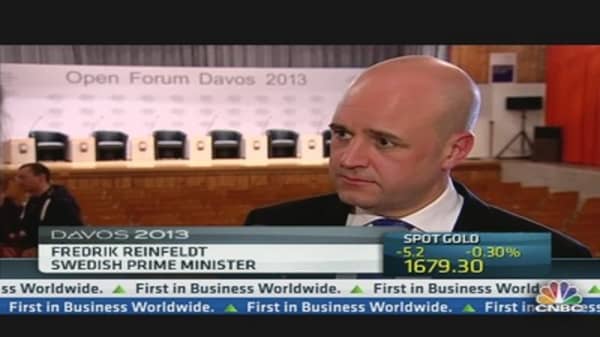After causing widespread consternation among his European Union (EU) partners with a speech calling for the EU to change, U.K. Prime Minister David Cameron has appeared politically isolated. However, support for his position appears to be growing, at least in some quarters within the EU.
The Swedish Prime Minister Fredrik Reinfeldt told CNBC on Wednesday that Sweden and the U.K. held similar objectives.
"I think it's true that in some ways we are like-minded in terms of getting the internal market to work better, to get free-trade agreements with growing parts of the world economy. We are also very like-minded in the need for job creation and increasing our competitiveness," Reinfeldt told CNBC in Davos, where he is attending the annual World Economic Forum (WEF).
In a speech on Wednesday, David Cameron promised the British public a referendum on EU membership should his Conservative party win the next national election in 2015.
"Cameron is trying to say, 'This is the way to stay inside the European Union and I'm ready to fight for it' which I think is welcome," Reinfeld said. "If David Cameron is willing to take more of the advantages [of EU membership] to the British people then we'll have a more balanced picture of the U.K. inside Europe – because that's where we want them."
"I want a stronger Europe but that doesn't mean more concentration of powers to Brussels."
"I always dislike politicians that say 'more Europe' when all they mean is 'more power for politicians in Brussels'. I've never heard that from my voters living everyday lives," Reinfeld said, echoing Cameron's warning that the British public were questioning the point of EU membership.
(Read More: Young Brits Support EU as Politicians Squabble)
He added that it was important that countries of all size felt that they had influence over policy and mutual respect for each other was essential.
"This is how we should now treat David Cameron – he has said he has a lot of concerns, so let's try to be practical, flexible and see if we can meet these discussions…quite often there is a balanced solution."





